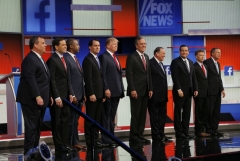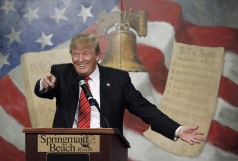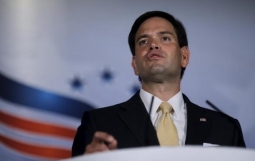
As the first Republican primary moves closer, the battle for the evangelical vote in Iowa is hotting up. And in this state more than others, it really matters: evangelical and born-again Christians account for 60 per cent of those who attend Republican caucuses. You don't win Iowa without convincing evangelicals that you're one of them.
But the word "evangelical" is a slippery one, not because it doesn't describe a particular constituency, but because it doesn't adequately describe them. An evangelical is someone who holds particular theological doctrines about the Bible, the cross and the need for conversion, and who belongs a particular Christian sub-culture. But these aren't the only things that define them.
A Republican evangelical is going to believe in other things too. He or she will probably be for small government, a strong military (though not necessarily deployed aggressively overseas), support for Israel, strict immigration control, and guns. They'll also have a sense that America isn't what it was and that the Washington establishment – and President Obama in particular – is somehow to blame.
So the candidates that most resonate with this constituency aren't necessarily the ones who speak their language the best. They'll be the ones who don't actively alienate them by espousing an alien faith, or no faith at all, but who succeed in convincing them that they're sound on everything else.
If there was any doubt about that, the rise of Donald Trump puts it to rest. In a recent New York Times/CBS News poll, Trump is way out in front, scoring 42 per cent of evangelical voters against Ted Cruz' 25 per cent. At the same time his lifestyle is wildly at variance with that of the evangelicals who say they'll vote for him: he is much-married, given to swearing at campaign rallies and often gets the tone of his comments on religion wrong. He was mocked for giving "Two Corinthians" as a Bible reference in a speech at Liberty University (normal usage in the UK, but in the US it would be "Second Corinthians") but that didn't stop Liberty's president Jerry Falwell Jnr saying: "In my opinion, Donald Trump lives a life of loving and helping others as Jesus taught in the great commandment."
Trump is succeeding because he appears as a man of conviction, unspun, capable, uncontrolled by the need to please the political establishment. The endorsement of evangelical leaders like Falwell at most gives those disposed to vote for him the permission to do so without violating their conscience – and vitriolic takedowns from respected figures like the Southern Baptist Convention's Russell Moore appear to make no difference.
What of his closest rivals, Ted Cruz and Marco Rubio?
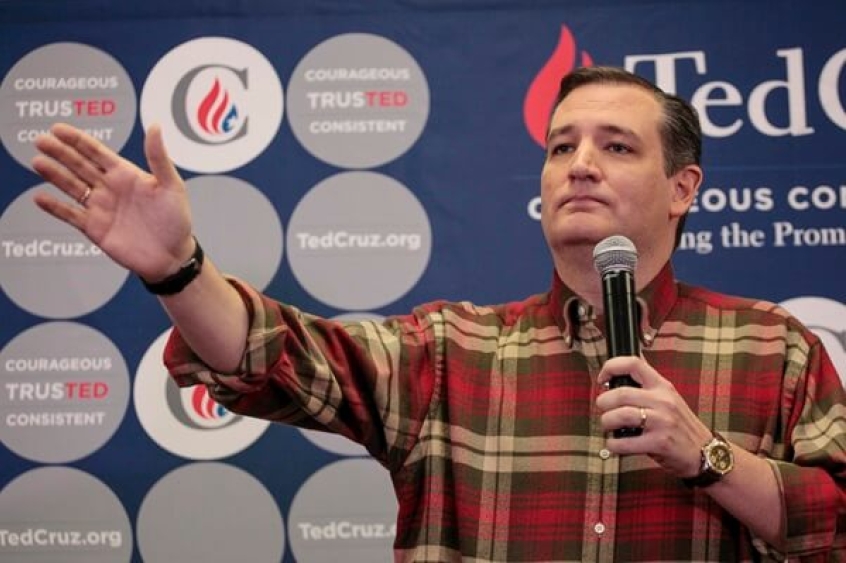
Cruz, whose candidacy is regarded with horror by the Republican establishment because of his extreme views and temperamental inability to compromise – the GOP's elder statesman, Sen Bob Dole, warned of "cataclysmic losses" if he won – has been wooing evangelicals too, and with far more credibility. His father Rafael is a Pentecostal preacher from Cuba who was persecuted under the Castro regime (Cruz Jnr is adamantly opposed to Obama's rapprochement with Cuba). He speaks the language like a native and is undoubtedly sincere. In Iowa he's spoken at a Pastors and Pews event, at a Christian home-schoolers convention and a Faith and Freedom forum. He's secured the endorsement of Bob Vander Plaats, Iowa's most influential evangelical activist, who is deploying his own formidable networks on Cruz' behalf. Cruz' strong support among evangelicals in Iowa had placed him as the front-runner. He's now lost that lead to Trump, according to a Fox poll which has Trump on 34 per cent, Cruz on 23 and Marco Rubio on 12 per cent. No other candidate breaks into double digits.
Despite all this, what may yet turn Republican voters, let alone the country as a whole, away from Cruz is the narrowness of his appeal. His message is that American freedoms are under threat from their own government. He is the conservative who's bitterly anti-establishment, who won't even think of cutting deals to keep the show on the road, who has deliberately alienated even his own Senate colleages. As Orrin Hatch, the most senior Republican in the Senate, has said: "I think we'll lose if he's our nominee...For us to win, we have to appeal to the moderates and independents. We can't just act like that only one point of view is the only way to go. That's where Ted is going to have some trouble."
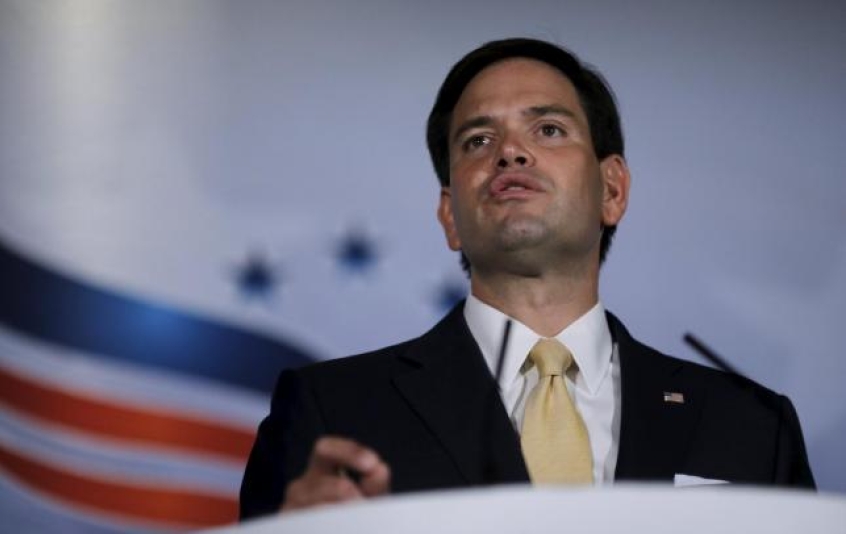
A distant third in Iowa, but still some way ahead of the pack, is Marco Rubio. He was raised as a Roman Catholic and confirmed and married in that Church, though the family attended a Mormon church while living in Las Vegas. He and his family attend a Southern Baptist church in West Kendall, Florida, as well as Catholic services. He is open about his faith to the extent that he had to field a question from an atheist about whether he he was running to be America's pastor-in-chief. Playing on conservative fears about the place of religion in society, he span his answer into defence of religious freedom: "I'm not going to force you to pray, I'm not going to force you to go to church. I'm not going to force you to espouse beliefs that you don't have." Turning to the audience, he said: "But no one is going to take away my right and your right to live out the teachings of your faith. No one."
And Rubio's outreach to evangelical leaders has been more subtle than either Trump's or Cruz's – and if it hasn't yet reaped the rewards in better poll numbers, there's still time. Rather than going purely for public endorsements, he has sought to associate prominent evangelicals with his campaign in a way that looks as though he's being endorsed without them actually saying so. Rubio has created a Religious Freedom Advisory Board, at arm's length from his campaign, on which luminaries including Rick Warren, conservative icon Wayne Grudem and Hispanic leader Samuel Rodriguez are serving. Rodriguez said: "My participation as an adviser on religious liberty issues to Senator Marco Rubio does not in any way, form, or shape indicate a de facto endorsement of his candidacy." The effect, of course, is much the same.
Rubio's team also created a Dignity of Life Advisory Board aimed at harvesting the support of pro-lifers and others concerned about vulnerable people; his spokesman said: "Marco respects the dignity of human life, including the lives of women facing the crisis of unplanned pregnancy, the jobless, mentally ill, disabled, elderly, and all others on the margins of society."
Among those serving on this board – again, without necessarily formally endorsing him – are Albert Mohler, president of the Southern Baptist Theological Seminary, and Dr George Wood, general superintendent of the Assemblies of God.
The evangelical vote is very, very important in Iowa. It is far less so in the next primary, New Hampshire, where only 22 per cent of primary voters describe themselves as evangelicals. In New Hampshire, while Trump is way ahead with 31 per cent support, Ted Cruz is now tied for second at 14 per cent with Ohio Gov. John Kasich. Despite their efforts to drum up the support of the faithful, it's bound to be a less significant voice.
And that may be a good thing. Whatever the result in Iowa, the spectacle of candidates targeting voters based on their faith leaves an unpleasant taste. It may be one of the inevitable consequences of playing a rough and sometimes dirty game, but the Christian faith is not to be used as polical currency.










